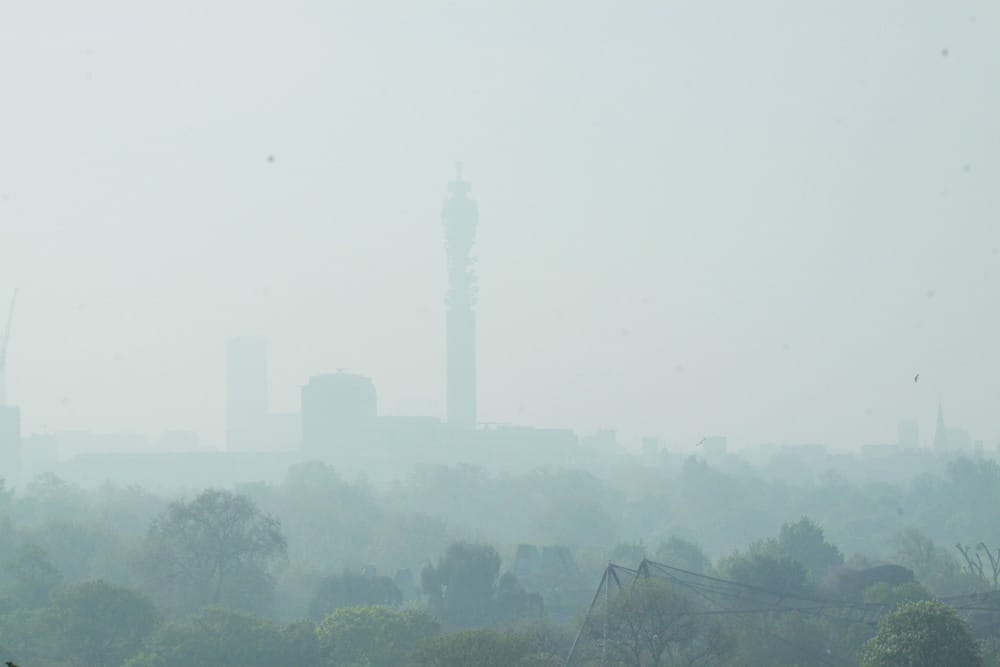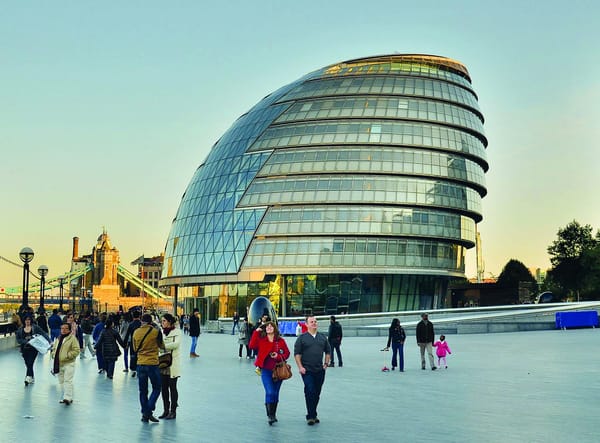Britain gets the push to clean our lungs
Will £600 million be enough to help the UK keep any of its COP21 promises?

Have you ever smelled the air in London? Wait, stupid question. For those who aren’t aware, London’s air isn’t the best on the market. Nor is the rest of the UK’s. In fact, the UK has been found in breach of EU regulations on air quality in 16 zones nationwide for the last 15 years.
It turns out, the UK’s air has been so dirty for so long that the EU is considering a £300 million annual fine for the government. The affair was described by the European courts as “perhaps the longest running infringement of EU law in history.”
Around July last year, King’s College London published a report stating around 9,500 people die prematurely, every year, from Nitrous Dioxide emissions in London alone and 29,000 in the UK (that VW scandal didn’t help things much). With this being the case, and British air pollution being amongst the worst in the EU, it’s no wonder the government can find substantial money, during a period of such austerity, to combat the issue. It looks like Newton’s First Law applies to policy too.
The UK has just set aside £600 million, awarding £40 million of it a few weeks ago, from now until 2020 to scrub clean our British breath. The £40 million had been awarded in the name of the Go Ultra Low fund: City councils around the UK proposed plans to increase the uptake of electric cars in their cities by residents, those with the best ideas were awarded funds to push ahead with plans.
The UK has just set aside £600 million to scrub clean our British breath
The output of the competition was a selection of four winning cities: Bristol, Milton Keynes, London and Nottingham. Here are some of the nifty ideas as well as the changes you Londoners can come to expect.
First off, the creation of ‘traffic priority’ schemes for Electric Vehicles (EVs) which allows EVs to use bus lanes 24/7 like normal traffic lanes, not a bad bypass. Milton Keynes, receiving £9 million has gone gung-ho, offering all 20,000 parking spaces, city-wide, for free to EV users. Bristol, given £9 million, has also opened three carpool lanes to EV users and is building 80 free-to-use rapid charging stations citywide. Also, it offers a four week lease of EVs to introduce potential buyers to their cars. Nottinghamshire and Derbyshire offer 13 miles of crucial bus lane, 230 charge-stations and a business ‘try before you buy scheme’.
As for London, our friends Boris and co. will use £13 million in a plan to convert several boroughs across London into ‘Neighbourhoods of the future’. This involves dozens of roads in Hackney with street-lighting that can charge your car. Harrow will also be giving priority parking and traffic priority to EVs. Promises of delivering Ultra Low Emission Vehicles (ULEVs) have also been made, but a lack of elaboration on the figures could either be a transparency issue or unfounded, causing debate around whether such minor sums of money, on the scale of public policy, could give a strong enough push to get us all to go green.
When you consider the context of this move, the plot thickens. One needn’t be reminded that the UK entered COP21 looking a bit underwhelming (thanks to Amber Rudd’s hash up). We were set to miss targets, infringed regularly on EU regulations and hadn’t done much to boost renewables.
Naturally, the UK on its back foot in Paris, signed up to the Zero Emission Vehicles Alliance (ZEV Alliance) which has the mission statement: “Only zero-emissions vehicles will be sold in the member country by 2050.” Bold right? One could even say, it’s the drastic change that should ensure the UK heads toward a greener future. Unfortunately, just like COP21, it wasn’t strongly binding and is more of a support group for those who want to make the change. This could explain why the clean air project is less funded than we’d expect.
A second point worth considering is that while the government has set aside £600 million for the clean air program, they have been quietly defunding councils and separate organisations who are in charge of keeping Britain’s air clean (i.e. the Department of Environment, Food and Rural Affairs giving less). Arguably, declining air quality has shown how useless local funding is but still, funds for certain city councils have been halved from £1 million to £500 thousand and instead they’ll have to participate in programs such as the Go Ultra Low fund, to have a chance of winning them back. Meanwhile, the city councils who can churn out clever proposals will get the funding to go ahead.
All might join in thinking that it’s a step in the right direction, even if they wish the magnitude of the step were a bit larger. Regardless, stay tuned for some progress and in the meanwhile, watch out for those silent electric cars!







